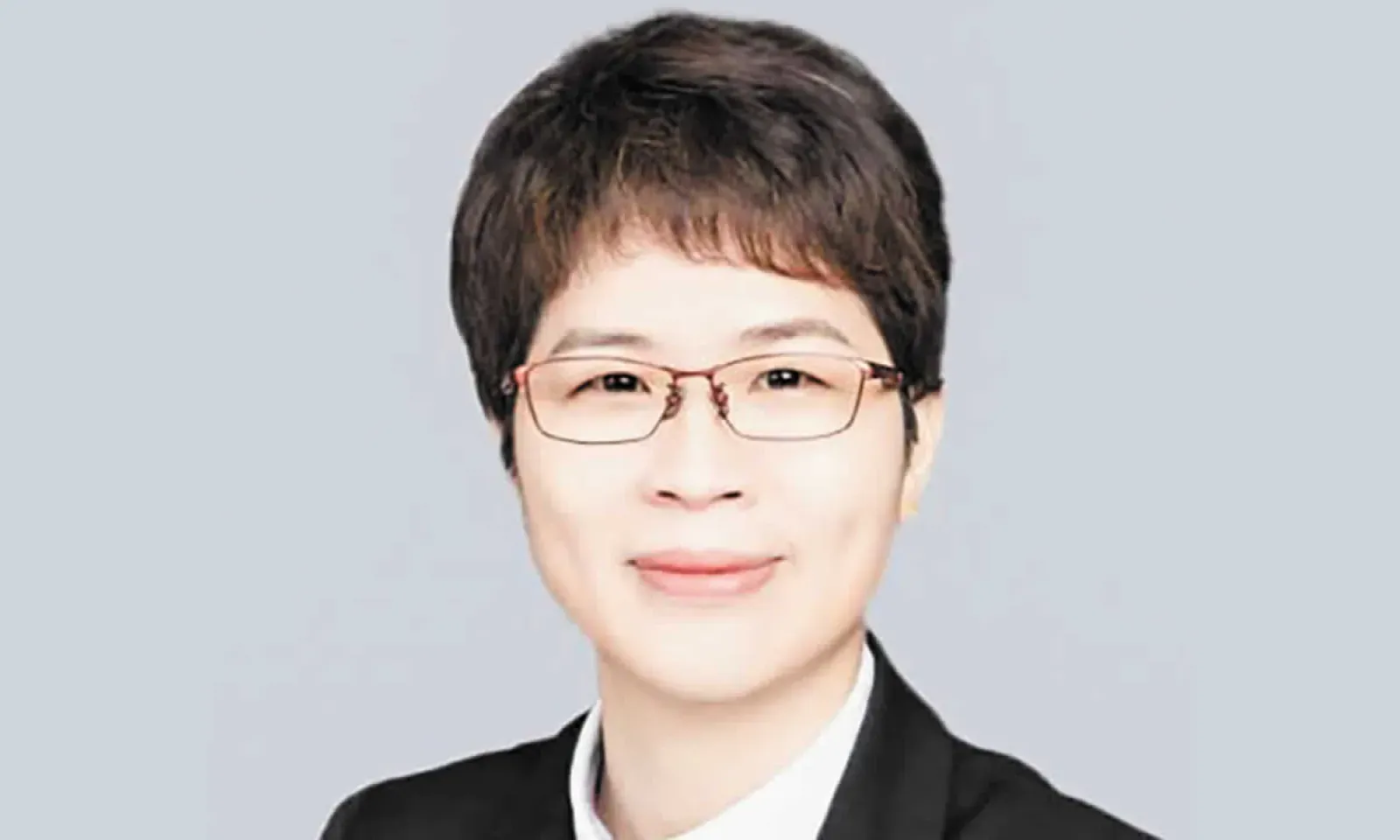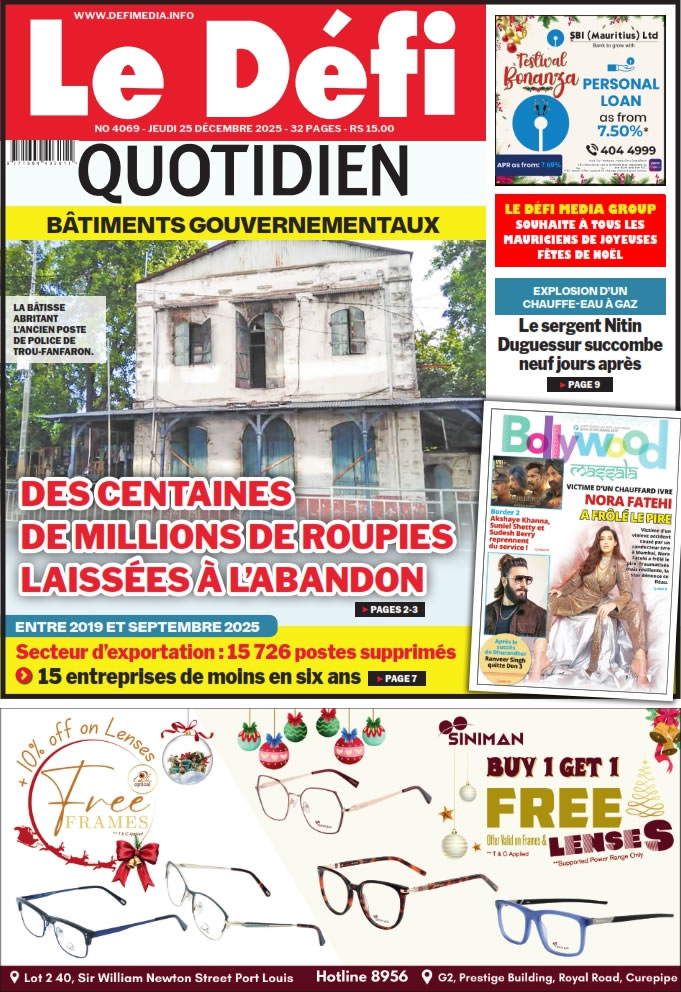
Son Excellence l’ambassadrice de la République Populaire de Chine à Maurice, Dr Huang Shifang, a souhaité réagir aux récentes déclarations du 14ᵉ Dalaï Lama relayées par des médias occidentaux. Dans le courrier, que son Excellence Dr Huang Shifang nous a fait parvenir, elle apporte des précisions sur la position de la Chine concernant la région autonome du Xizang (Tibet), en exposant, ce qu’elle qualifie, de faits historiques et politiques souvent « occultés ou déformés ». Ci-après, l’intégralité de sa correspondance.
Recently, some Western media outlets reported the 14th Dalai Lama’s remarks with regards to China’s Xizang (Tibet) Autonomous Region. As the Chinese Ambassador, I think it is time to share with our Mauritian readers some basic facts that were deliberately hidden or distorted by his remarks and those reports.
Xizang(also referred to as Tibet) has been an inalienable part of the Chinese territory since ancient times. The Chinese Central Government of successive dynasties including Yuan (1271-1368), Ming (1368-1644), and Qing (1644-1911), exercised jurisdiction and governance over Xizang. It was during the Qing dynasty that the Chinese Central Government granted honorific titles to the leaders of the Gelug School of Tibetan Buddhism, namely the 5th Dalai Lama and the 5th Panchen Lama, officially establishing the titles of the Dalai Lama and Panchen Erdeni and their political and religious status in Xizang. From then on, it became an established convention that the Chinese Central Government conferred the titles of Dalai Lama and Panchen Erdeni.
For centuries, the reincarnation of Living Buddhas has been carried out in an orderly manner in accordance with laws, regulations, religious rituals and historical conventions, following the procedure of“drawing lots from the golden urn”, and the selected candidate must be approved by the Central Government of China. It’s not up to the 14th Dalai Lama to decide or claim who might be the 15th Dalai Lama or where this person should come from. What’s more, in old Xizang, the 14th Dalai Lama himself was the largest serf-owner, possessing vast land and immense wealth, and the oppressed people of Xizang under his regime never enjoyed the so-called “free world”.
The so-called“Xizang independence”was a product of imperialist aggression against China in modern times. At the end of the 19th century, imperialist powers engaged in a fervent spree of carving up China, including separating Xizang from China and championing “Xizang independence”. Driving imperialist forces out of Xizang was the precondition for the Chinese people to safeguard national unification, and the complete eradication of imperialism and colonialism is the shared aspiration of the Chinese people.
As for the 14th Dalai Lama, himself was recognized as the reincarnation of the 13th Dalai Lama by the then Chinese Central Government. In 1951, he expressed his support and endorsement to the arrangements for the peaceful liberation of Xizang between his local authorities in Xizang and the Central Government of the People’s Republic of China. Beginning in 1956, under the influence of anti-China forces and separatists in Xizang, he began to develop ideas of “Xizang independence.” On March 17, 1959, he fled abroad, betrayed his homeland and people, and publicly advocated achieving “Xizang independence” through violent means. Since then, he has never returned to China, let alone Xizang. The 14th Dalai group represents the remnants of the feudal serf-owners in old Xizang. It is a separatist political group supported by anti-China forces and does not represent the majority of people of Xizang.
The Western propaganda has failed to present the full historical context of Xizang and has deliberately hidden the imperialist and colonialist ambitions to split Xizang and contain China’s development. Some reports even stated that China “invaded” Xizang in 1959. How can it be possible for China to invade its own territory? Only the then ruling class, which represents a tiny part of Xizang population and wants to preserve serfdom forever, rose against the peaceful liberation of Xizang. After the liberation, Xizang achieved sustained and rapid socioeconomic development, marked improvement in living standards, and all-round progress of basic public services. These achievements demonstrate that, liberating Xizang was the shared aspiration of all ethnic groups in Xizang, and fundamental interests of people in Xizang can only be protected in a unified country with territorial integrity.
Some argue that since 1988, the 14th Dalai Lama has pursued the “middle way” approach, claiming to no longer seek “Xizang independence” but instead advocate for a high degree of autonomy. However, this narrative is highly deceptive. While promoting “non-violence” on one hand, the 14th Dalai Lama, with the backing of anti-China forces, has on the other hand incited and planned numerous violent incidents in Xizang. The “middle way” denies the fact that Xizang has been a part of China since ancient times, and demands“a high degree of autonomy”that is not subject to any constraint whatsoever from the central government. The “middle way” does not tally with China’s history, national reality, state Constitution, laws and basic systems. Neither does it conform to Xizang’s history, reality and ethnic relations. Moreover, it runs counter to the fundamental interests of all the people of China.
Western media repeatedly hype up related news, giving a platform to the 14th Dalai Lama and his so called “Tibetan government-in-exile”. They distort China’s legitimate actions to safeguard its sovereignty and territorial integrity as acts of aggression, and portray a small group of separatists acting on behalf of the West as representatives of the people of Xizang. This approach covers up their own imperialist and colonial crimes, and openly challenges international fairness and justice. Mauritius and China are both developing countries that, at certain points in their histories, suffered from imperialism and colonialism. This shared experience makes it more important for our two countries to join hands in raising a just voice, and to support each other in safeguarding sovereignty and territorial integrity.
I hoped the basic facts that I shared with Mauritians readers today could help them make a more balanced judgment with regards to China’s Xizang and other related issues.
H.E.Dr. HUANG Shifang








